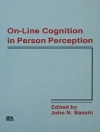Quickly acquire the knowledge and skills you need to effectively
understand, assess, and treat individuals struggling with
dyslexia
Essentials of Dyslexia Assessment and Intervention
provides practical, step-by-step information on accurately
identifying, assessing, and using evidence-based interventions with
individuals with dyslexia. Addressing the components that need to
be considered in the assessment of dyslexia–both cognitive
and academic–this book includes descriptions of the various
tests used in a comprehensive dyslexia assessment along with
detailed, evidence-based interventions that professionals and
parents can use to help individuals struggling with dyslexia.
Like all the volumes in the Essentials of Psychological
Assessment series, each concise chapter features numerous callout
boxes highlighting key concepts, bulleted points, and extensive
illustrative material, as well as test questions that help you
gauge and reinforce your grasp of the information covered.
Providing an in-depth look at dyslexia, this straightforward
book presents information that will prepare school psychologists,
neuropsychologists, educational diagnosticians, special education
teachers, as well as general education teachers, to recognize,
assess, and provide effective treatment programs for dyslexia. The
book is also a good resource for parents who are helping a child
with dyslexia.
* A practical guide to understanding, assessing, and helping
individuals who have dyslexia
* Expert advice and tips throughout
* Conveniently formatted for rapid reference
Other titles in the Essentials of Psychological Assessment
series:
Essentials of Assessment Report Writing
Essentials of School Neuropsychological Assessment
Essentials of Evidence-Based Academic Interventions
Essentials of Response to Intervention
Essentials of Processing Assessment
Essentials of Conners Behavior Assessments
Essentials of Cross-Battery Assessment, Second Edition
Essentials of WISC-IV Assessment, Second Edition
Table des matières
Series Preface xi
Acknowledgments xiii
One: Understanding Dyslexia 1
Two: A Brief History of Dyslexia 19
Three: The Brain and Dyslexia 43
Nancy Mather, Barbara Wendling, Martha Youman, Sally Shaywitz ,
and Bennett Shaywitz
Four: Genetics and the Environment 61
Five: Assessment of the Cognitive and Linguistic Correlates of
Dyslexia 77
Six: Assessment of Decoding, Encoding, and Reading Fluency
105
Seven: Instruction in Phonological Awareness: Early
Reading/Spelling Skills 135
Eight: Instruction in Basic Reading and Spelling Skills 147
Nine: Instruction in Reading Fluency 179
Ten: Technology Applications for Students With Dyslexia
199
Kathleen Puckett and Blanche O’Bannon
Eleven: Dyslexia in Diff erent Languages and English Language
Learners 223
Martha Youman
Twelve: Dyslexia in the Schools 241
Appendix: Descriptions of Evidence-Based Programs 261
Glossary 323
References 333
Annotated Bibliography 365
About the Authors 369
Index 371
A propos de l’auteur
Nancy Mather, Ph D, is a Professor at the University of
Arizona in the Department Disability and Psychoeducational Studies.
She specializes in the areas of assessment, reading, writing, and
learning disabilities. She has served as a learning disabilities
teacher, a diagnostician, a university professor, and an
educational consultant. She has published numerous articles and
books and conducts workshops on assessment and instruction
nationwide. She is a co-author of the Woodcock-Johnson III and has
co-authored two books on interpretation and application of the WJ
III.
Barbara J. Wendling, MA, is the Education Director for
the Woodcock-Muñoz Foundation. In addition, she conducts
training workshops nationwide on topics related to assessment and
linking assessment to instruction. Barbara has served as a general
education teacher, a learning disabilities specialist, a product
manager for a test publishing company, and an educational
consultant. She has a number of publications related to assessment
and instruction and is a co-author of the Woodcock Interpretation
and Instructional Interventions Program.
Both authors have coauthored numerous Essentials volumes,
and cowrote together the Essentials of Evidence-Based Academic
Interventions, one of the series’ best-selling titles.












